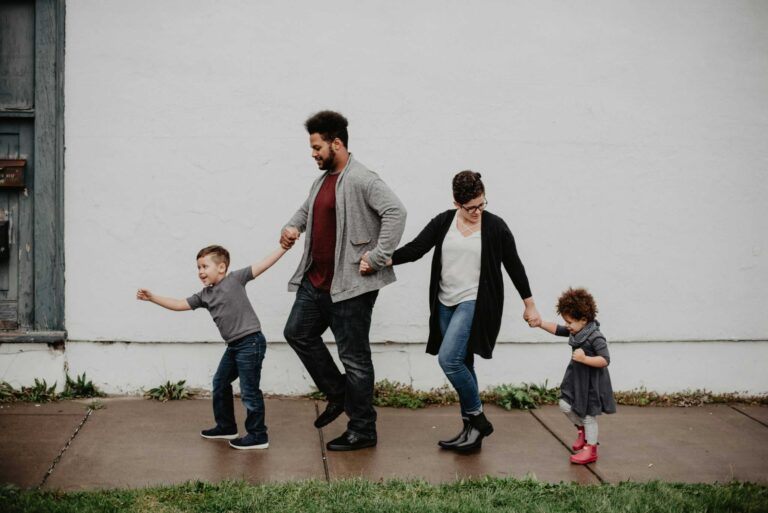7 Signs You Need to Reevaluate Toxic Friendships
Because “We’ve Been Friends Forever” Is Not a Good Enough Reason Anymore
Welcome to the wonderful world of the toxic friendship—the social connection that feels more like an obligation than a bond. Spoiler alert: just because someone’s not technically doing anything evil doesn’t mean they’re good for your mental health.
Let’s talk about that friend. You know the one. They’ve been in your life forever, your group chat is full of inside jokes, and if anyone asked, you’d say you’re close. Except… every time you hang out, you feel drained. Or annoyed. Or quietly seething while they derail your stories with their own drama for the 14th time this month. We’re conditioned to think that friendship is supposed to last forever. But guess what? People change. You change. And some friendships go from “ride or die” to “why am I even still here?”
If any of this hits a little too hard, here are the big, glaring, emotionally draining signs that you might need to reevaluate a toxic friendship.
You Feel Worse After Talking to Them
This is the biggest red flag of a toxic friendship, and yet somehow the most ignored. After a coffee date or phone call with this person, you don’t feel energized or supported—you feel like you’ve just been emotionally mugged. Your brain hurts. Your soul needs a nap.
Whether it’s the passive-aggressive comments, the constant negativity, or the way they made your exciting news about them, the vibe is consistently… bad.
Here’s a wild thought: friendship should make you feel better, not like you need therapy because of it.
It’s Always About Them
Every conversation is a one-way street—and you’re not the one driving. You listen to them vent about their job, their dating life, their existential crisis over avocado toast. But when it’s your turn? Crickets. Or worse, they find a way to pivot the conversation back to their dog’s anxiety.
A toxic friendship often masquerades as closeness, but in reality, it’s emotional labor. And if you’re always the unpaid therapist, maybe it’s time to close up shop.
They Only Reach Out When They Need Something
Suddenly, they’re in your DMs. “Hey, I was just thinking about you!” Translation: they need a favor. A ride. A job reference. Help moving, again. They show up like clockwork when something goes wrong in their life—and vanish the second it’s resolved.
If the friendship feels transactional, you’re not paranoid. You’re being used.
They Undermine Your Growth

You got promoted? They joke that you’ll be too busy for your “real friends” now. You started therapy? They roll their eyes and say you’re overanalyzing everything. You set a boundary? Suddenly, you’re “too sensitive.”
People in a toxic friendship often act threatened by your progress. Because the more you grow, the more obvious it becomes that they’re standing still—and maybe holding you back.
Real friends cheer you on. Toxic ones try to keep you small.
You’re Afraid to Be Honest With Them
You walk on eggshells. You rehearse texts before you send them. You dread telling them anything that might “set them off.” And God forbid you say “no” to plans—suddenly you’re being guilt-tripped into an existential crisis.
This is emotional manipulation, plain and simple. If you can’t be honest without fear of retaliation or drama, you’re not in a safe friendship. You’re in a minefield.
They Don’t Respect Your Boundaries
You said you didn’t want to talk about that topic. They brought it up anyway. You needed space. They took it personally. You have other friends. They’re jealous.
In a healthy friendship, boundaries are respected. In a toxic friendship, they’re seen as an attack. You’re allowed to say “this makes me uncomfortable” without being made to feel like the villain in their personal soap opera.
You’re Nostalgic for Who They Used to Be
Ah, yes, the classic trap: “But we’ve been friends since high school!” Okay, cool. You also used to wear jeans under your dress in 2007. Times change.
If the only thing keeping the friendship alive is nostalgia, not current compatibility, ask yourself: would you choose this person as a friend today?
If the answer is no, that’s your answer.
Final Thoughts: It’s Okay to Let Go
Ending or distancing yourself from a toxic friendship isn’t petty. It’s healthy. It doesn’t mean you hate them. It means you love yourself enough to protect your peace. You’re not a bad person for outgrowing people who no longer align with who you are—or who you’re trying to become.
Friendship should feel safe, supportive, and occasionally like an unhinged inside joke that could never be explained in public. If it feels like a chore, a competition, or a source of emotional whiplash, it’s time to let go.
Because the people you keep around should lift you up, not drain your battery every time their name pops up on your phone.




